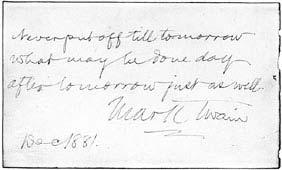He who corrects a scoffer gets dishonor for himself, And he who reproves a wicked man gets insults for himself. Do not reprove a scoffer, or he will hate you, Reprove a wise man and he will love you. Give instruction to a wise man and he will be still wiser, Teach a righteous man and he will increase his learning. ~Proverbs 9:7-9 NASB
 Have you ever tried to correct an arrogant or wicked person? Chances are your advice was rejected on the spot, according to these verses — perhaps even accompanied by a few choice words indicating a low opinion of your comments.
Have you ever tried to correct an arrogant or wicked person? Chances are your advice was rejected on the spot, according to these verses — perhaps even accompanied by a few choice words indicating a low opinion of your comments.
This passage teaches the foolishness of interacting with a “scoffer,” defined as one who jeers or mocks or treats something with contempt, or calls out in derision. A person with this kind of attitude isn’t interested in anyone’s advice.
Jesus offered a relevant comment in Matthew 7:6, saying, “Do not give dogs what is sacred; do not throw your pearls to pigs. If you do, they may trample them under their feet, and turn and tear you to pieces.” Offering precious Biblical advice to a wicked person can bring you dishonor and insults.
By contrast, the scriptures teach here that giving guidance to a wise person will make them even wiser. Who are the wise and the righteous? They are people who have acquired godly wisdom by studying the scriptures. They are characterized by uprightness, integrity or morality. According to this passage, offering insights to such a person will only help them become more learned.
In Jude 1:17-19, there is an accurate description of present-day scoffers:
But, dear friends, remember what the apostles of our Lord Jesus Christ foretold. They said to you, “In the last times there will be scoffers who will follow their own ungodly desires.” These are the people who divide you, who follow mere natural instincts and do not have the Spirit.
As you begin to offer correction or advice, remember to pray for the Holy Spirit’s discernment: Is this person a scoffer, or one who possesses Biblical wisdom? If you are confident they are not the kind of person who will cause you dishonor, hurl insults at you, or bring division to the body of Christ, offer your counsel. If not, it may be better just to keep your thoughts to yourself.
“Have you no wish for others to be saved? Then you’re not saved yourself, be sure of that!”




